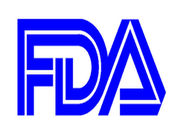For patients who have not responded to, or cannot tolerate, ursodeoxycholic acid
TUESDAY, May 31, 2016 (HealthDay News) — Ocaliva (obeticholic acid) has been approved by the U.S. Food and Drug Administration to treat primary biliary cholangitis (PBC) in combination with ursodeoxycholic acid (UDCA) in adults with inadequate response to UDCA, or as a single therapy in adults unable to tolerate UDCA.
Ocaliva is designed to increase bile flow from the liver and suppress bile acid production in the liver. The drug was evaluated in clinical studies involving 216 patients. The proportion of participants achieving reductions in alkaline phosphatase levels was higher among Ocaliva-treated participants than placebo-treated participants at one-year follow up. The most commonly recorded side effects included pruritus, fatigue, arthralgia, abdominal pain, throat pain, dizziness, and constipation.
The FDA granted Ocaliva fast track and orphan drug designation. Clinical studies have not established an improvement in survival, progression to liver scarring, or suppression of disease-related symptoms, the agency said, noting that clinical trials evaluating these factors are ongoing. Ocaliva should not be given to patients with complete biliary obstruction, the FDA warned.
“Patients left untreated, or who have not responded to ursodeoxycholic acid, are at risk for liver failure and death,” Amy Egan, M.D., M.P.H., deputy director of the Office of Drug Evaluation III in the FDA’s Center for Drug Evaluation and Research, said in a statement. “Today’s approval of Ocaliva provides an important treatment option for patients living with PBC who have not responded to the only other approved therapy, ursodeoxycholic acid.”
Ocaliva is produced by New York City-based Intercept Pharmaceuticals.
Health News Copyright © 2016 HealthDay. All rights reserved.








